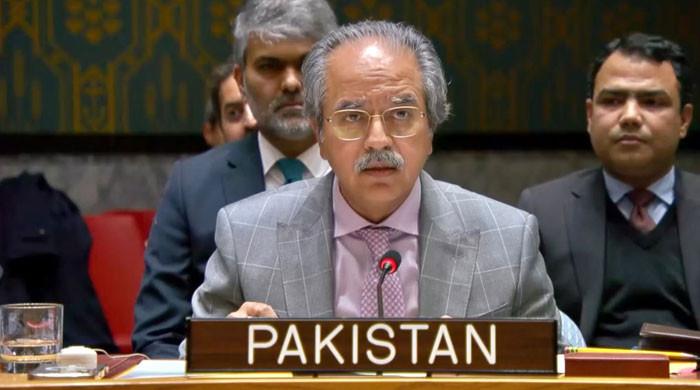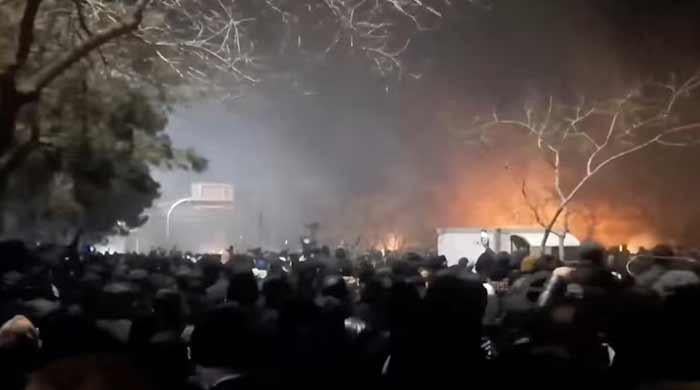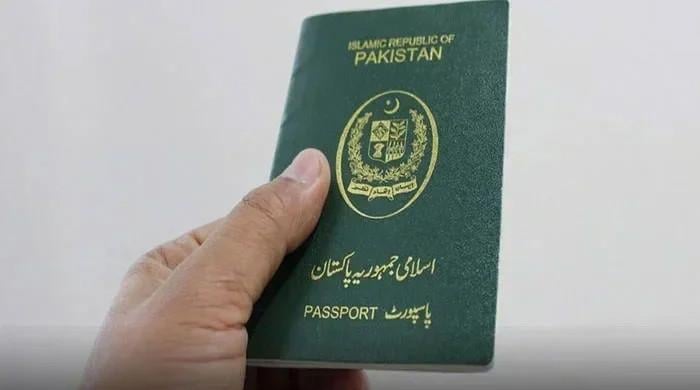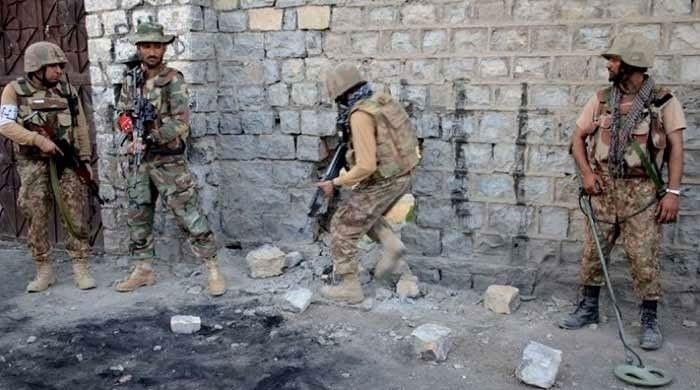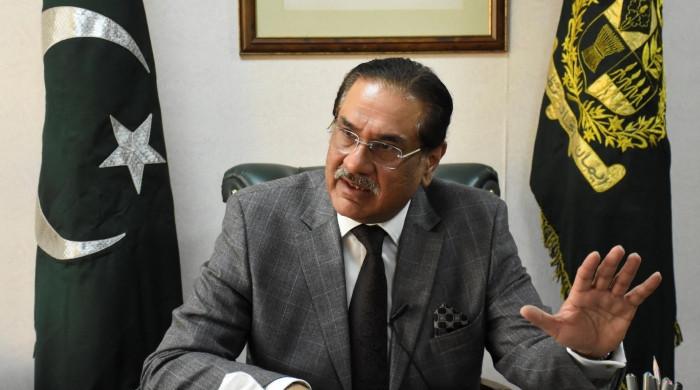SC has received threat letter, says Deputy NA Speaker Qasim Suri
Fawad Chaudhry says it's Supreme Court's responsibility to start probe on letter and summon concerned people
April 12, 2022
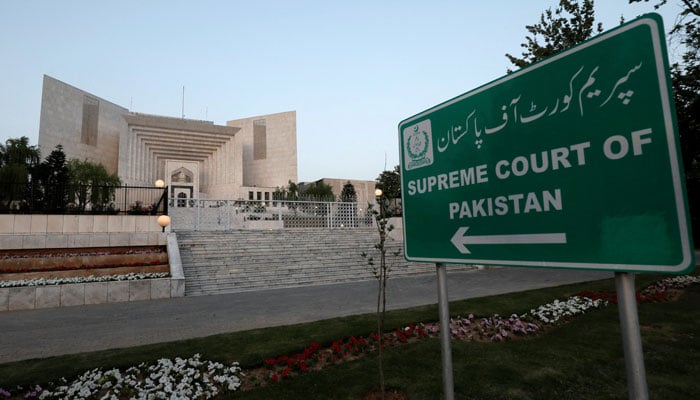
- Deputy NA Speaker Qasim Suri says CJP Umar Ata Bandial's office has received “sealed confidential letter” containing threat from US.
- Fawad Chaudhry says it is SC's responsibility to start a probe on letter and summon concerned people, including envoy.
- On March 27, Imran Khan had flashed a letter saying he has "written evidence" that no-trust motion against him was a foreign conspiracy.
ISLAMABAD: Supreme Court on Tuesday received the “sealed confidential letter” — containing the alleged threat from the United States — sent by National Assembly Deputy Speaker Qasim Suri.
Deputy NA Speaker Suri tweeted that the National Assembly Secretariat had sent the “sealed confidential letter” on his directions and has been “received” by the office of Chief Justice of Pakistan Umar Ata Bandial.
“The honourable court is expected to form a commission similar to the one formed in the memogate scandal and hold an inquiry,” tweeted Suri.
The deputy speaker shared that in the letter it's “clearly written” that Pakistan would face strict actions if the no-confidence motion against Imran Khan had failed.
“As directed by the Acting Speaker, National Assembly of Pakistan, a confidential letter (in original) received from the Cabinet Secretary which was submitted by the Ministry of Foreign Affairs, Government of Pakistan (Cypher Bureau) to the Honourable Speaker, is onward submitted for kind perusal of the Honourable, Chief Justice of Pakistan,” says the letter which was received by the Supreme Court.
Soon after Suri’s announcement, PTI leader Fawad Chaudhry shared that Suri has sent the “original letter” to the chief justice.
“Now it is the responsibility of the Supreme Court to start an investigation on the letter and summon the concerned people, including the ambassador, to record their statement,” said Fawad.
What is the 'threat letter'?
On March 27, former prime minister Imran Khan, during what PTI labelled as one of its "biggest" rallies in its history at the Parade Ground in Islamabad, flashed a letter before the public, saying that he has "written evidence" that "money has been pouring in from abroad," while "some of our people are being used to topple the government".
Following the Opposition's ruckus on the ‘threat letter’, the then PM had called the National Security Committee (NSC) and presented the letter. To this, the NSC expressed concern and a demarche was issued to the US envoy in Pakistan.
Subsequently, based on this ‘threat letter’, the deputy speaker rejected the no-trust motion against Imran Khan and President Arif Alvi dissolved the NA on the PM’s advice. However, this act turned into a deep constitutional crisis. The United States, however, categorically denied any involvement in instigating a regime change in Pakistan.
Supreme Court reinstates National Assembly
The dissolution led to the Supreme Court to take suo motu notice on the matter.
After a five-day hearing, in landmark judgement, the Supreme Court restored the National Assembly after it declared the government's decision to dissolve the assembly and NA Deputy Speaker Qasim Suri's ruling against the Constitution.
The top court ordered National Assembly Speaker Asad Qasier to summon the session on Saturday (April 9) no later than 10:30am to allow the vote on the no-confidence motion against the premier.
Following Supreme Court's order, the National Assembly's session for voting on the no-confidence motion against Imran Khan took place at 10:30am.
However, during the session, the vote was delayed and held late at night.




